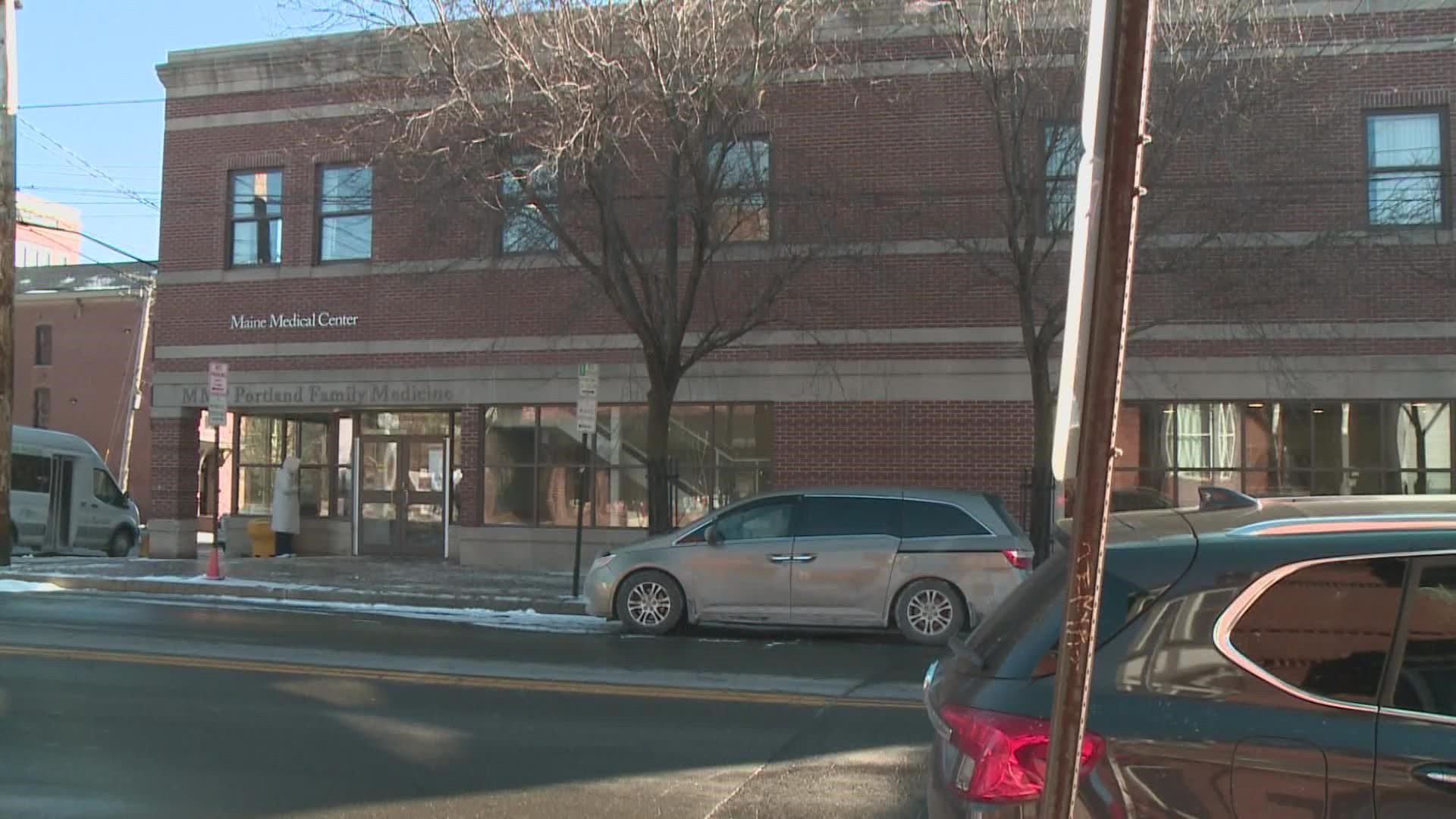PORTLAND, Maine — Patients suffering from long COVID are concerned about a decision to close a MaineHealth clinic in Portland that specializes in treating people with lingering symptoms of the virus.
The U.S. Centers for Disease Control and Prevention define long COVID as new, returning, or ongoing virus symptoms. That includes fatigue, chest and joint pain, dizziness, headaches, and brain fog.
MaineHealth officials have been working on this transition for several months, saying patients will be better served by their primary care doctors. But some patients say they are being left out in the cold.
Marnie MacLean is a former television news journalist. She now owns and runs a video production company, Moose Tree Media. But to say the last 5 months of her life have been a living hell is an understatement. It all started in June when she got COVID. A round of Paxlovid made her cold and chest pain disappear, but the symptoms returned with a vengeance.
"It was here," she said pointing to her chest. "This is where the main pain was and the heaviness and it made it difficult to breathe and I found that scary."
Her symptoms were so scary MacLean ended up in the emergency room. X-rays and other tests came back normal. She was finally told she had long COVID.
"It was the constant pain, and struggle to breathe," MacLean explained, holding back tears. Federal health officials say lingering symptoms impact up to 30 percent of patients who get COVID. Symptoms can range from dizziness, and blood clots to chest pain and other problems. But there is no proven treatment to stop post-COVID. Even more troubling, just released data shows 3,500 Americans died of long COVID-related illness in the first 2½ years of the pandemic. After a four-month wait, MacLean met with providers at MaineHealth's long COVID clinic in November.
"They made me see yes, it's real, you are not crazy, and we can find ways to help you," she said. She started feeling better after doing breathing exercises to open up her lungs and chest, tried acupuncture, and saw a trainer and a therapist. But she won't be able to continue at the clinic as a patient.
Caroline Cornish, a spokesperson for the hospital systems, said the clinic stopped accepting new referrals in September as it prepared to shut down in January.
Cornish told NEWS CENTER Maine in a statement:
"Throughout the pandemic, MaineHealth has made a commitment to providing the most up-to-date care for patients experiencing COVID-19 and post-COVID complications. As our providers have learned more about Long COVID, it has become clear that our Long COVID patients are best served by managing their health through their primary care team, who has the full picture of each patient’s medical history, instead of at a separate Post-COVID clinic. As a result, MaineHealth’s Portland-based Post COVID clinic has not been accepting new referrals since Sept. 1 and will close in January 2023. Throughout the fall, MaineHealth has been working directly with affected patients and providers on this transition. MaineHealth’s RECOVER study continues to collect information to help guide future understanding of Long COVID and its treatment options. Those interested in participating in the study can learn more by visiting www.recoverCOVIDstudies.org."
At Central Maine Medical Center's long COVID clinic, which is run through the system's Family Medicine Residency program, there have been more calls from Maine Health patients looking for help. Dr. Chris Decker oversees the program, which he said is scheduled months out.
"We have pretty long visits to try to figure out what is going on, and a lot of times a primary care doctor [doesn't] have that time in a single visit," Decker said.
MacLean is grateful that she has seen some improvement in her symptoms but believes the demand for treatment only underscores a growing need for more long COVID services, not less.

